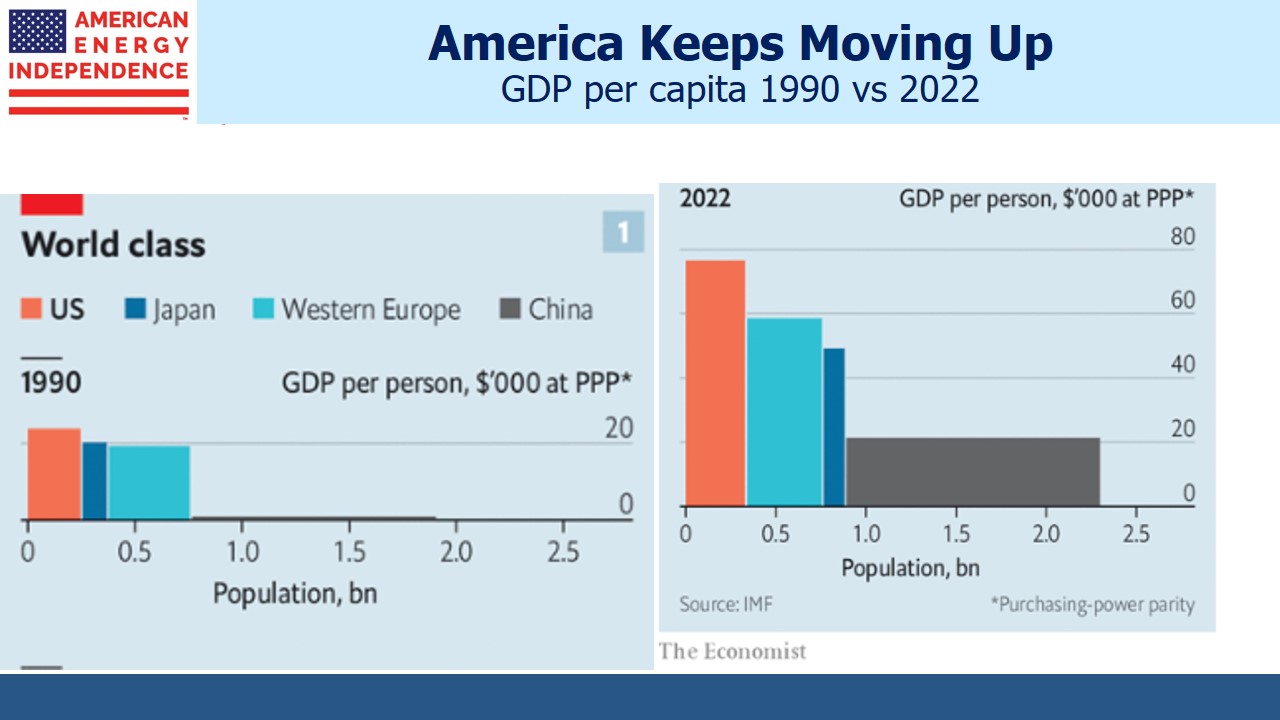Celebrating The 4th of July
Independence Day is a wonderful holiday. It involves being outside in warm weather with the family to eat and watch fireworks. What’s not to like? Perhaps more than at any other time of the year, Americans rightly feel pride at our great country. As a transplanted Brit for now 41 years, my riposte to the inevitable jokes about a long-ago war is to point out that if it had gone the other way I wouldn’t have moved.
Ronald Reagan was my first president, and his sunny optimism has seemed right ever since. I have a small bust of him on my desk. He would chuckle to know that it was picked up at the Truman Little White House in Key West gift shop, a Republican memento bought at a museum honoring a Democrat president.
At the 1992 Republican National Convention, former President Reagan said “America’s best days are yet to come.” Two years later in his poignant letter disclosing Alzheimer’s he ended with the same sentiment. Warren Buffett shares Reagan’s consistently positive outlook, but negativity is all too easily found in the media. As we argued recently, it doesn’t fit the facts (see So Many Pessimists).
In April, The Economist declared that America’s economic outperformance is a marvel to behold. There’s no bad time for this view but rereading it while contemplating an afternoon of bbq then pyrotechnics will make a thoroughly agreeable day even better.
The charts date back to Reagan’s time in office and his 1992 speech. There were plenty of reasons then to dismiss such simplistic optimism. In 1989 Paul Kennedy published The Rise and Fall of the Great Powers: Economic Change and Military Conflict from 1500 to 2000. It remains an insightful history of how economic might usually drives military power (the EU is a notable exception). Eventually empires sink under the weight of maintaining global hegemony. But Kennedy’s prediction that Japan would eventually supplant America at the top of the economic pyramid was spectacularly wrong.
China is our strategic competitor. But their economy is still only three quarters the size of ours with four times the population. And ominously, that is now declining. I like our chances better than theirs. And as far as where I’d rather live – well, let’s just say it’ll be a cold day in hell before China is fending off hordes of western immigrants seeking a Chinese lifestyle.
In 1982 when I moved to the US, I left the UK’s GDP per capita of $10K for America’s $14K. Today’s figures are $46K and $80K. Decades of lower productivity capped with the self-destructive if understandable Brexit vote have taken their toll. British living standards have slipped behind Germany’s. Relative to the US, UK households are as far behind today as Italy was in 1980. Few would have made that bet. Vindication of a decision to emigrate 41 years ago relies on more idiosyncratic metrics. But, as in trading, it’s important to go with the major trend.
The data also reflects American exceptionalism because nobody else has been able to keep up. Our problems include fiscal profligacy, a poorly functioning electoral process heading for a rematch of two polarizing old men that nobody wants, and wokeness out of control. We’re managing to overcome all those headwinds. Whatever problems we have are self-inflicted, and not insurmountable.
We love our flags in America. In England the Cross of St George has replaced the British Union Jack at sporting events. The united kingdom is less so nowadays. Brexit exposed that the Scots would prefer to be run out of Brussels than London. They even root for England’s opponent in the World Cup. If a vote on Scottish independence was held in England they’d be sent packing.
The British flag was on full display during Charles III’s coronation, and his mother’s funeral last year. It’s flown on special occasions. But normal British reserve constrains such overt patriotism.
America is different. The waterway behind our shore house in Point Pleasant, NJ shows a flag at every home. These don’t just fly on Independence Day, but on every day. Ours is on the left. Proud of my English heritage, I originally added the Cross of St George appropriately positioned below our Stars and Stripes. Regrettably it was made from cheaper material that a few months of coastal breeze turned ragged. It had to be retired. Our American flag is indefatigable. Like America.
Happy Birthday America.
We have three funds that seek to profit from this environment:



